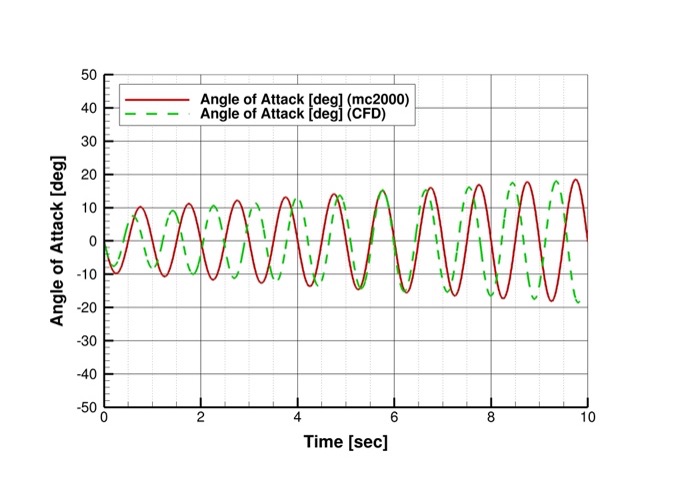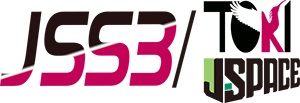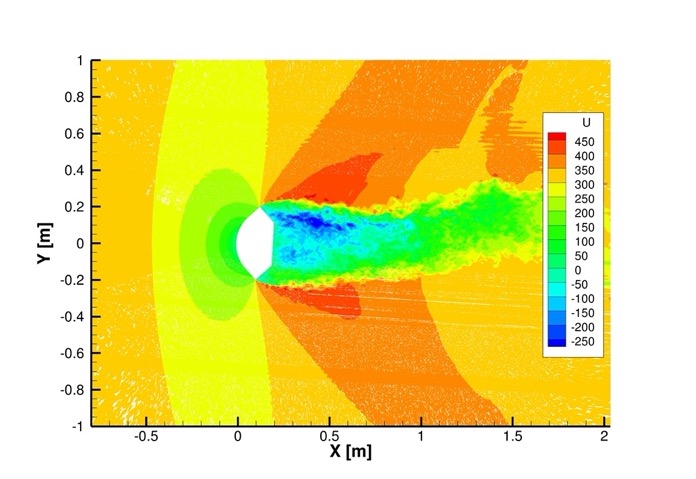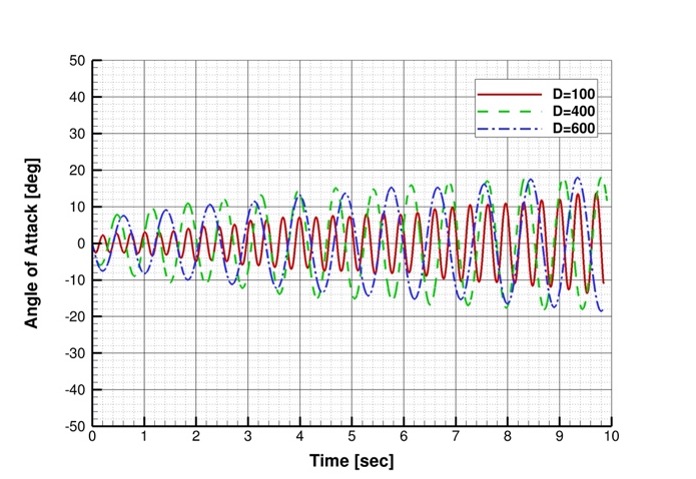Attitude Instability Analysese of Sample Return Capsules
JAXA Supercomputer System Annual Report February 2022-January 2023
Report Number: R22EDA201A32
Subject Category: Aeronautical Technology
- Responsible Representative: Kenji Fujii, Aviation Technology Directorate, Fundamental Aeronautics Research Unit
- Contact Information: Takashi Ozawa(ozawa.takashi@jaxa.jp)
- Members: Takashi Ozawa, Toshiyuki Suzuki, Hiroki Takayanagi
Abstract
In this study, we try to enhance physical models for high temperature gas and numerical simulation method to accurately predict heating and aerodynamic characteristics at atmospheric entry. We aim to develop high fidelity simulation tool by demonstrating improvement of prediction accuracy by comparing experimental data and simulation results with the newly proposed model and method. In this year, we focus on the analyses of attitude instability for sample return capsules.
Reference URL
N/A
Reasons and benefits of using JAXA Supercomputer System
In order to evaluate uncertainties and dependence on nonequilibrium thermochemical models, configurations, and freestream conditions, supercomputer has been used to perform a large number of CFD runs by changing physical models, configurations, and flow conditions.
Achievements of the Year
In this work, we have studied the dynamic instability of hayabusa(HYB)-shaped capsules in transonic flow regime by carrying out CFD computations. Since attitude instability characteristics of HYB-type capsules in transonic flow regime is not well-known in terms of size dependence and center of gravity dependence. We have studied size dependence of pitch motion with diameters of 100, 400, and 600 mm using the JONATHAN-ALE code with Large-Eddy Simulation (LES). At Mach number of 1.1, the effect of enlargement of capsules on dynamic instability characteristics as well as the sensitivity to center-of-gravity position was found. However, the discrepancy of the angle of attack range between CFD results and motion simulation results with an existing aerodynamic database was small. In our future work, we extend the computationa time and the maximum capsule diameter. Also, we investigate the dependence of flow conditions in order to improve the aerodynamic database and reliability of motion simulation results.

Fig.3: Comparison of angle of attack between attitude simulation with an existing aerodynamic database and CFD results
Publications
– Oral Presentations
Proceedings of the Space Sciences and Technology Conference: 2022
Usage of JSS
Computational Information
- Process Parallelization Methods: MPI
- Thread Parallelization Methods: OpenMP
- Number of Processes: 366 – 2928
- Elapsed Time per Case: 24 Hour(s)
JSS3 Resources Used
Fraction of Usage in Total Resources*1(%): 2.45
Details
Please refer to System Configuration of JSS3 for the system configuration and major specifications of JSS3.
| System Name | CPU Resources Used(Core x Hours) | Fraction of Usage*2(%) |
|---|---|---|
| TOKI-SORA | 66904666.52 | 2.92 |
| TOKI-ST | 0.48 | 0.00 |
| TOKI-GP | 0.00 | 0.00 |
| TOKI-XM | 0.00 | 0.00 |
| TOKI-LM | 0.00 | 0.00 |
| TOKI-TST | 0.00 | 0.00 |
| TOKI-TGP | 0.00 | 0.00 |
| TOKI-TLM | 0.00 | 0.00 |
| File System Name | Storage Assigned(GiB) | Fraction of Usage*2(%) |
|---|---|---|
| /home | 191.67 | 0.17 |
| /data and /data2 | 3663.33 | 0.03 |
| /ssd | 283.33 | 0.04 |
| Archiver Name | Storage Used(TiB) | Fraction of Usage*2(%) |
|---|---|---|
| J-SPACE | 0.00 | 0.00 |
*1: Fraction of Usage in Total Resources: Weighted average of three resource types (Computing, File System, and Archiver).
*2: Fraction of Usage:Percentage of usage relative to each resource used in one year.
ISV Software Licenses Used
| ISV Software Licenses Used(Hours) | Fraction of Usage*2(%) | |
|---|---|---|
| ISV Software Licenses(Total) | 0.00 | 0.00 |
*2: Fraction of Usage:Percentage of usage relative to each resource used in one year.
JAXA Supercomputer System Annual Report February 2022-January 2023




